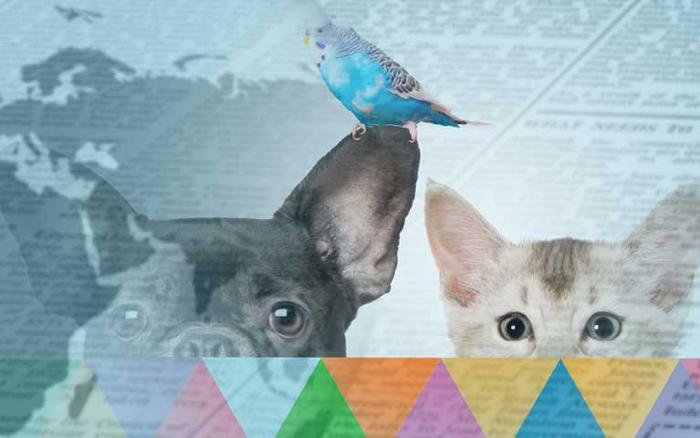

New AI and Pet Tech digitalization transform the relationship between people and animals
Artificial Intelligence is here to stay. It's already part of the DNA of virtually every industry, and pet care is no exception. This new technology is at the service of caring for our pets.
Digitalization has arrived in the pet world and is here to stay. Homes are filled with smart devices that turn pet care into a connected and secure ecosystem. Feeders that automatically adjust rations, litter boxes that detect changes in feline health, cameras that allow remote interaction, and GPS collars that record activity and vital signs are already a reality on the market. These products offer peace of mind and convenience, but also open up new business opportunities for a rapidly expanding segment.
If everyday technology makes pet owners' lives easier, artificial intelligence is revolutionizing veterinary practice. Algorithms that interpret X-rays with diagnostic accuracy, apps that decipher dogs' body language, and wearables that function as "virtual veterinarians" by anticipating health problems are concrete examples of this disruption. Added to this is the rise of telemedicine, which allows for immediate consultations and reduces unnecessary travel. The line between physical and digital clinics is blurring, creating a fertile field that combines products with value-added digital services
Innovation isn't limited to the product: it's also transforming the way we sell and build loyalty. Comprehensive subscriptions that combine food, hygiene, and veterinary services into a single monthly fee are already successful in mature markets, while multi-service marketplaces bring together dog walkers, sitters, and trainers under a single platform. At the same time, experiential commerce transforms stores into spaces for socializing, leisure, and emotional connection, with pet-friendly cafes, play areas, and photography services. These models generate recurring revenue and reinforce brand loyalty.
Pets' physical well-being is increasingly moving toward a preventative approach. Genetic testing allows for the prediction of hereditary diseases and the design of customized nutritional plans; fresh food delivered to homes provides diets tailored to each animal; and alternative proteins based on insects or cultured meat respond to both sustainability and health. Added to this landscape are nutraceuticals, functional supplements, and specialized pharmaceuticals, consolidating a premium segment
Beyond devices, emotional intelligence has become a strategic value in the sector. In veterinary clinics, empathy and effective communication strengthen relationships with clients and reduce emotional pressure on teams. In homes, apps that help interpret signs of stress in dogs or cats strengthen the bond between humans and animals. And in social or therapeutic settings, assistance dog programs demonstrate how emotional connection improves the self-esteem and mental health of children and adults.
The relationship with pets transcends the domestic sphere and extends into the workplace, education, and healthcare settings. The acceptance of emotional support animals in public spaces and businesses is increasing, reflecting a society that recognizes the physiological and psychological benefits of living with animals. Consequently, the demand for calming products, anti-stress textiles, interactive toys, and collective experiences that strengthen this bond is growing.
Sustainability is no longer an add-on, it's a requirement. Biodegradable packaging, toys made from recycled materials, eco-friendly litter, and snacks made from agricultural byproducts are some examples of how the circular economy is penetrating pet care. Consumers demand transparency, traceability, and environmental commitment, and brands that meet these expectations will have a clear advantage in purchasing decisions.
Although North America and Europe account for a large portion of spending, the most rapid growth is seen in Asia, the Middle East, and Latin America. Urbanization, a growing middle class, and smartphone penetration are generating growing demand for digital services, subscriptions, and premium products. Local platforms for pet walkers, sitters, and transportation are proliferating in these regions, and the internationalization of companies is opening up new business horizons.
The future of pet care is no longer possible without technology, personalization, sustainability, and emotional intelligence. What was once a commodity sector is now becoming a complex ecosystem where health, well-being, and the human-animal bond are integrated with digital innovation and environmental awareness.
Sources: Pets2B Consultants, Wagbar, TGM Research, Global Pet Industry / PETS International, IM Veterinaria.





